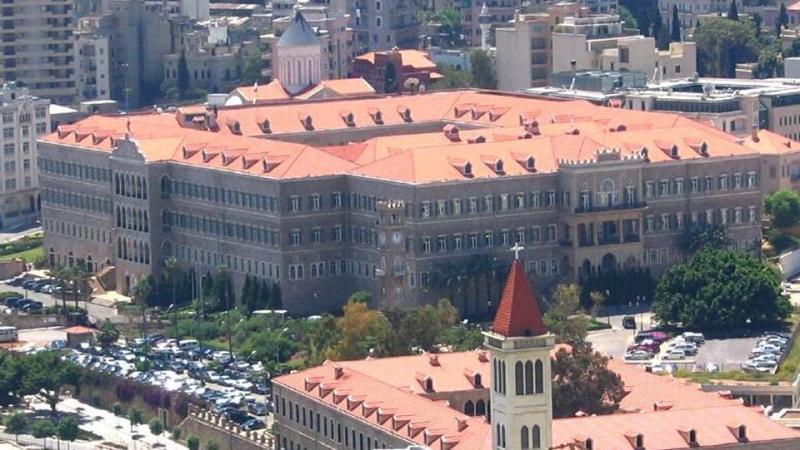The non-binding parliamentary consultations have concluded, and Prime Minister-designate Najib Mikati has embarked on his challenging mission to form a government that can oversee the last months of the current term and the anticipated vacuum after the end of President Michel Aoun's presidential term. The vertical division in the Parliament, along with the existing fragmentation regarding the presumed majority, suggests that the election will not occur on schedule. However, government formation is also uncertain, as the period is short compared to previous intervals that separated the designation from the formation. Consequently, stagnation prevails, and the current government continues to manage affairs before and after the presidential election in case Mikati fails in his new task. It is noteworthy that conditions and counterconditions are pouring in from all directions, and disputes over names and ministries have started even before the assignment process, particularly regarding the Ministry of Energy, which the Free Patriotic Movement insists on retaining, with its insistence on the current minister, Walid Fayad.
Pessimism is present in all circumstances and directions, as even if Mikati manages to form a new government, who guarantees its productivity? All governments during Michel Aoun's term have failed, and therefore, nothing new indicates optimism for the success of the latter. Those who rejected reform over six years, through their ministers and their allies' ministers, will not seek it in the last quarter of an hour. If the current government continues in its current state, no positive results are expected, as it failed to accomplish what was required of it on the economic front when it was a regular government, and thus will not be able to handle the toughest mission in Lebanon's history while in a caretaker capacity.
Lebanese people are convinced that solutions will only come after the end of Michel Aoun's term and the election of a new president who operates with a sense of responsibility. They look forward to the few remaining months leading to the end of the current term to enter a transitional phase that may bring new prospects for economic rescue, especially if the election is directed towards a positive consensus president who works towards reform, rather than a negative confrontational approach that obstructs safeguarding their interests and that of their movement.
Returning to the consultations, it was noteworthy that Mikati received a delegation from the Economic and Social Council to hear its opinion on the upcoming government. This council has been referred to as the 129th deputy and may be the most prominent presence in this consultative process due to its expertise and experience, which Lebanon needs today, away from demands or empty theorizing. The chairman of the council, Charles Arbid, revealed that the delegation stressed during the meeting the necessity of hastening the formation and directly moving towards production, paying attention to both the public and private sectors, and exploring the business environment, wages, and transportation allowances. Finding solutions for these sectors and the workforce therein strengthens purchasing power, which in turn leads to increased production and stimulates the economic wheel.
In an interview with the electronic newspaper "Anbaa," Arbid noted that the delegation also raised the need to pass the reform laws in the Parliament, particularly the budget and capital control laws. Arbid conveyed Mikati's enthusiasm and his request for the council's assistance and pressure towards launching an "emergency working workshop," as named by the prime minister-designate, which involves the executive authority, relevant parliamentary committees, the council, and productive forces to speed up the reform process.
Moreover, MP Jean Talouzian emerged from his meeting with Mikati feeling pessimistic, stating that he asked the prime minister-designate to candidly inform the Lebanese about his inability to form a government if it is not established by the end of the week. In his conversation with "Anbaa," Talouzian reiterated his point, saying "if Mikati cannot form a government due to conditions and counter-conditions, he should inform the Lebanese and avoid unnecessary trips to Baabda, which are of no use due to their direct impact on the exchange rate of the dollar in the market."
Talouzian also relayed Mikati's positivity, but the latter did not hide the existence of conflicting opinions and conditions during the meeting. Talouzian emphasized the need for decisive decisions.
On a different note, a new development occurred regarding the maritime border demarcation issue, with a U.S. statement indicating progress made following "fruitful" negotiations held by U.S. envoy Amos Hochstein with the Israelis. However, Washington and Tel Aviv did not disclose more details regarding the alleged positivity. According to press information, Hochstein contacted Deputy Speaker Elias Bou Saab to keep him informed.
Lama Hariz, a member of the leadership council in the Progressive Socialist Party, noted that "the file has still not moved despite the American position. The Israelis agreed to narrow the disagreement, but what does that mean? Do we start from an undulating line, but how, and from which point? What will happen to block number 8? Lebanon is negotiating without data on the maps of the reservoirs, especially regarding the Qana reservoir."
In her conversation with "Anbaa," Hariz insisted on the need to return to the framework agreement, "which is the most suitable solution to continue negotiations and secure rights, away from the randomness overshadowing the file."




